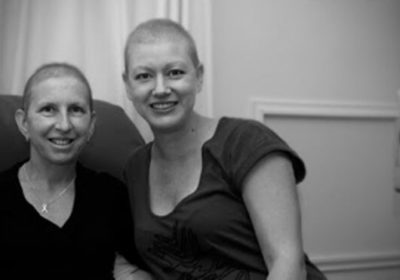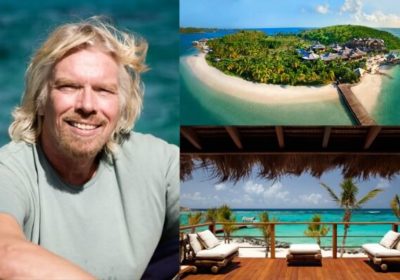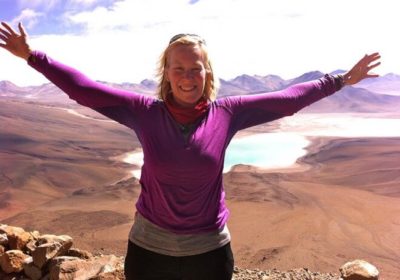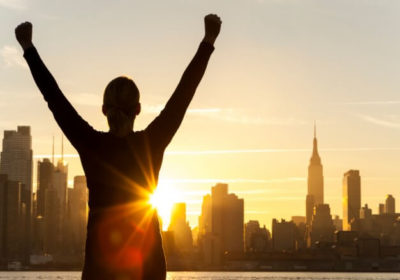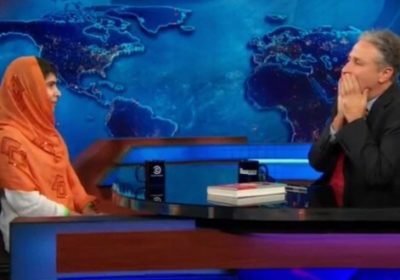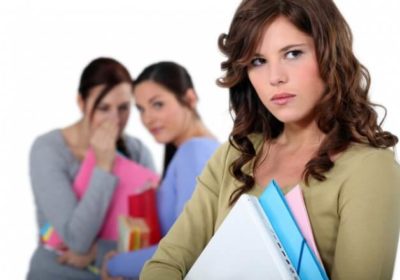- Stats: 1776 2 0
- Author: Melissa Histon
- Posted: 25/07/2019
- Category: Inspirational Women, Soul Sista Stories
- Tags: brain cancer, cancer sucks, Kirralee Hughes, living with hope, Living with incurable disease, Mark Hughes Foundation
Kirralee Hughes on brain cancer, life lessons and creating the Mark Hughes Foundation
Hi, my name’s Kirralee Hughes. My husband and I founded the Mark Hughes Foundation in 2014 after he was diagnosed with high grade brain cancer.
Mark and I met at the Broadmeadow races. We just really clicked from that day. My mum come in to pick me up and Mark walked me to the car and said, “I’ve looked after your daughter really well,” and we’ve been inseparable ever since. Our wedding day was perfect. Everything was just as planned. Obviously, with Mark being a football player with the Knights, it was a huge wedding. It was a really fantastic day and it couldn’t have gone any better.
Mark and I have three children, Zach, 15, Dane, 11, and Bonnie, seven. The family unit is so important for us. We try to do a lot of things together. We both come from really strong family units and very similar backgrounds, so we have a lot of the same values, and we really try to instil those values in our children.
Mark had two days of really intense headaches, and he went to our local GP. Just as a precaution, he said, “You have played football, let’s go and get a scan.” So pretty much from that moment onwards, it all happened very quickly. Before we knew it, he was getting diagnosed with brain cancer. It went from Mark being diagnosed with brain cancer to me being lifted up and put on the bed because I had fainted. I don’t handle medical issues really well, but we both had to really come together and work out how we are going to get through this period of time.
It scared the life out of me, like I couldn’t even comprehend what was happening. It’s hard to control your thoughts. It is. I remember one appointment, we drove away and one of the doctors, he really couldn’t tell us how long Mark had left to live. There was a little bit of misdiagnosis in the beginning, because brain tumors are rare, and there wasn’t a great deal of information that we had at that time.
Unfortunately, brain cancer, it never leaves you. So even now, Mark has to get scans every four months, and that’s just a part of our life. But to come to that realization was really hard. Mark and I both thought nothing would be worse than if it was your children, but to Mark’s mom and dad, that is their son. So it affected us all.
Mark had his surgery, and they found out that it was high grade brain cancer. Previous to that, Mark and I, realized how lucky we were by having what we had in life. Six months prior to that, our eldest son had been diagnosed with epilepsy. Initially at that stage, we thought, “Okay, maybe we can throw ourselves into helping bring awareness to childhood epilepsy.” And before we knew it, we had the brain cancer diagnosis. I remember I was Googling, and I would make myself physically sick, because the statistics on brain cancer are horrific.
Brain cancer is the biggest killer of children, and also for those under 40. There hasn’t been any improvements in treatment in 30 years. The research is very little, and it’s so underfunded. So we both thought, and in the hospital room it was, “Maybe we could start a foundation and help bring awareness to brain cancer and raise some funds, because it’s so underfunded. Let’s find better treatments for brain cancer.” So that really happened in the hospital ward after his surgery.
To start a foundation from scratch, we found out there was so much work involved, and because Mark was having his treatment at that stage, we had three young children, we thought that to go down the path of actually setting up our own foundation would be too much at that stage. So we were introduced to Julie Ainsworth. She introduced us to one of the managers at the Hunter Medical Research Institute, and possibly partnering with them to be able to raise funds for brain cancer and have some research being able to happen at at HMRI. We fund research at HMRI and they’re a very big part of our plans. We also fund research across Australia, paediatric research projects, adult tumors. To date, the Mark Hugh’s Foundation has raised over $10 million to fund brain cancer research projects all around Australia.
When Mark was first diagnosed, it was a very lonely place. You have the doctors talking to you and they use big words, and you literally don’t take in anything at that appointment. You leave, and it’s like, “Oh, my gosh. I don’t know what to do.” One of the first things we decided that we would like to fund in Newcastle was a brain cancer care nurse. When we did get a second opinion down at the Royal North Shore, they have a brain care coordinator there who you have your appointment with the specialist, and then after that you deal direct with the brain cancer care coordinator.
You can ring her and ask her any questions at any time. She organizes your medication, tablets, and she’s your one point of call for anything. They didn’t have that up here in Newcastle, and we did feel that was something that everyone going through brain cancer, they should have access to a brain cancer care coordinator. That was one of the first things that was funded here with the money that we first raised. I can’t tell you the difference that it has made to all the patients, so that’s probably our proudest moment to date.
The Mark Hughes Foundation would not be where it is today without the amazing support of the community. When Mark and I first thought, “Let’s have a beanie campaign,” that all came about because Mark lost his hair just at the back of his head when he was having radiation, and he would put on a cap all the time, because he was quite self conscious of it. During winter, we thought, “Okay, maybe let’s call it Beanie For Brain Cancer Day. Let’s create awareness week, Beanie For Brain Cancer Week.” So we thought we would just contact a few local schools, and we called them. I grabbed some friends, family, they also made contact with some schools. Before we knew it, we had our first ever Beanie For Brain Cancer Week and we raised $30,000, which we were absolutely stoked. That has grown now to our Beanie For Brain Cancer campaign, which last year, raised $3.2 million.
The community, both in Newcastle and beyond, has just been amazing. We have the best supporters, the amazing volunteers, just everywhere around Australia. We feel that people have jumped on this journey we’re on because so many people can relate to it. The first year that the National Rugby League came on board, we initially had ordered 30,000 beanies. The NRL come on board and said, “We’re going to do a beanie round.” We had to order pretty much another 70,000 on the spot, and we weren’t prepared. We literally weren’t prepared that year, so Mark’s mum and dad, we got them down, and we got the kids involved, just for all the mail out of the beanies. They were sticking stickers. We would just grab all family and friends to help us with that campaign. We literally go, “How did we do that?” Every year, we look back and just go, “Oh, my God, how did we get through that?”
Since Mark was diagnosed with brain cancer, we both have a new focus on life and of what’s important. Without family and friends and your health … that’s everything in life. It has made me just have more appreciation of what we have, what we’re blessed with. You never know when that’s going to change, so make the most of every day.
Mark’s a strong person, and I felt that I had to also become just as strong as him, because his focus was on getting better and I felt that I had to also lift, and yet learn to cope with the pressure. The Foundation has been an unbelievable gift for us, in a way. I’d prefer if we never had the Foundation, that would mean Mark wouldn’t have brain cancer, but it is such an amazing focus for us. It gives us hope, and that’s what drives me every day to continue to raise funds, because you can’t take away hope. It may be a breakthrough just around the corner that happens because of something we’ve funded. The Foundation has been a godsend, in a way.
I don’t think people realize how much you get out of giving. There is so much goodness in the world out there, and it’s very easy to focus on all the bad stuff that you see on the news. There is so much goodwill out there and we see it every day through the Foundation. When we can see that the work that we’re doing helps others, it makes us just feel so happy, I suppose. You go to bed thinking, “Yeah, we’ve made a difference to the lives of helping other people.” It might be just that we might have just made a call to someone who you know is struggling at the moment. It is hard. We sometimes have to try and separate ourselves, because there’s a lot of sad stories, too, out there.
My dream is that there is a world without brain cancer. We’re not going to give up until there is better treatments. I know that Mark is here for the long haul, and we both will keep working together with the wider community and not give up until that day has come.
Life is so precious and you just never know what is around the corner. We make sure that, most of the time, we make each day count, whether that is just grabbing a glass of wine and we go out onto our verandah. Mark and I will just sit there and just talk about the day and make sure that every moment counts. A saying that we both have now is, “Get out the good china.” You know, don’t put things away for a rainy day. Get them out now and enjoy them, because you never know when life might change. We’ve also learned about the power of community and when coming together you can make such a difference. Without the local community and the wider community, the Foundation would not be here today, so we are so proud of everyone coming together and making a difference.
Kirralee Hughes xx
Author
Melissa Histon
Photographer, philanthropist, adventurer, blogger, avid permitter and social changer, Melissa Histon is a woman on a mission to make a real difference to the lives of women globally. Melissa spent 10 years working in the corporate world before leaving to establish a successful photography business. After experiencing a number of life-altering events, Melissa created The Sista Code in May 2014 with a dream to see women empowered, happy and connected. Whether it's building a house for the homeless in Nepal, interviewing inspiring women from around the globe, or creating events and campaigns to support sistas escaping domestic violence, Melissa knows that true change can only happen when we all stand together and boost each other.

